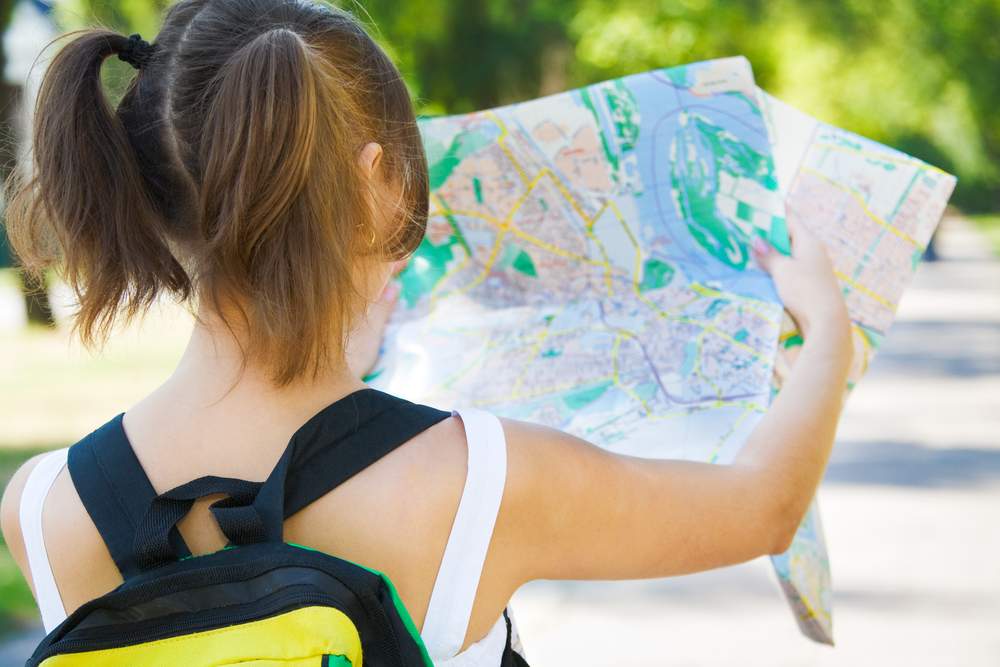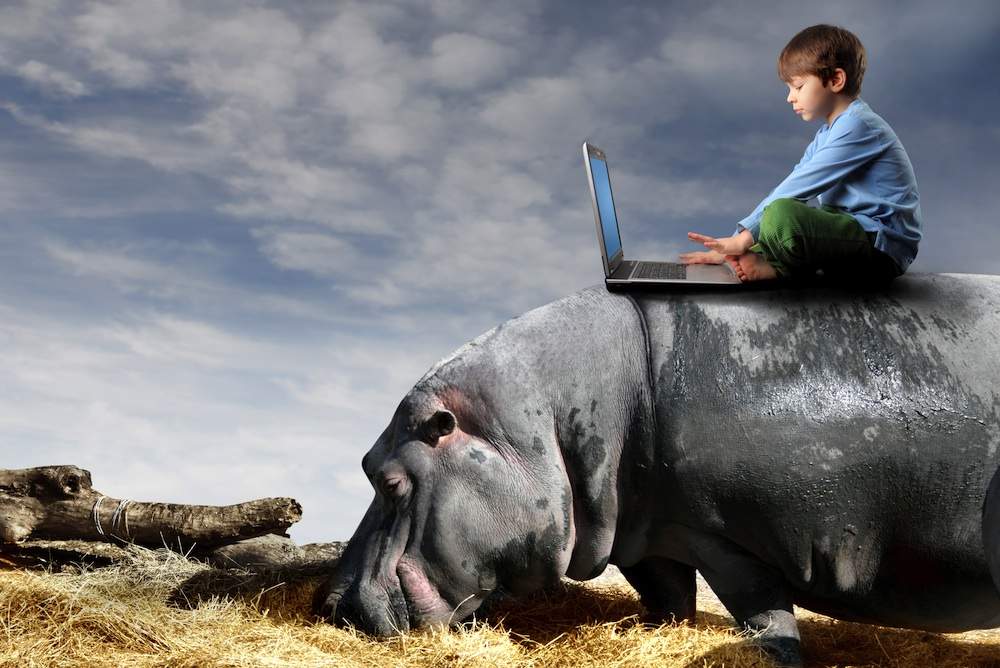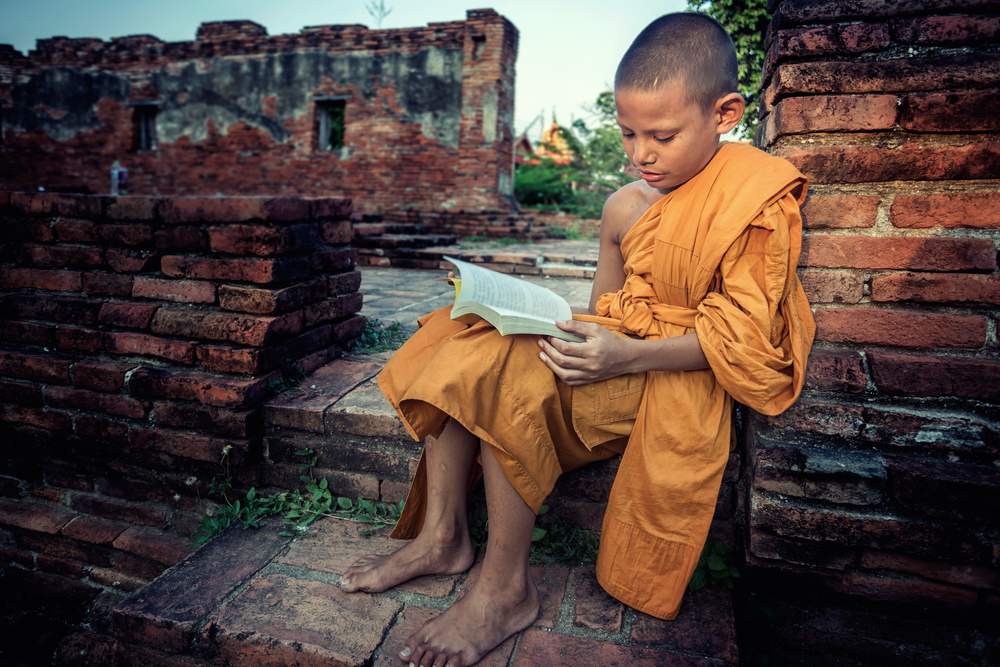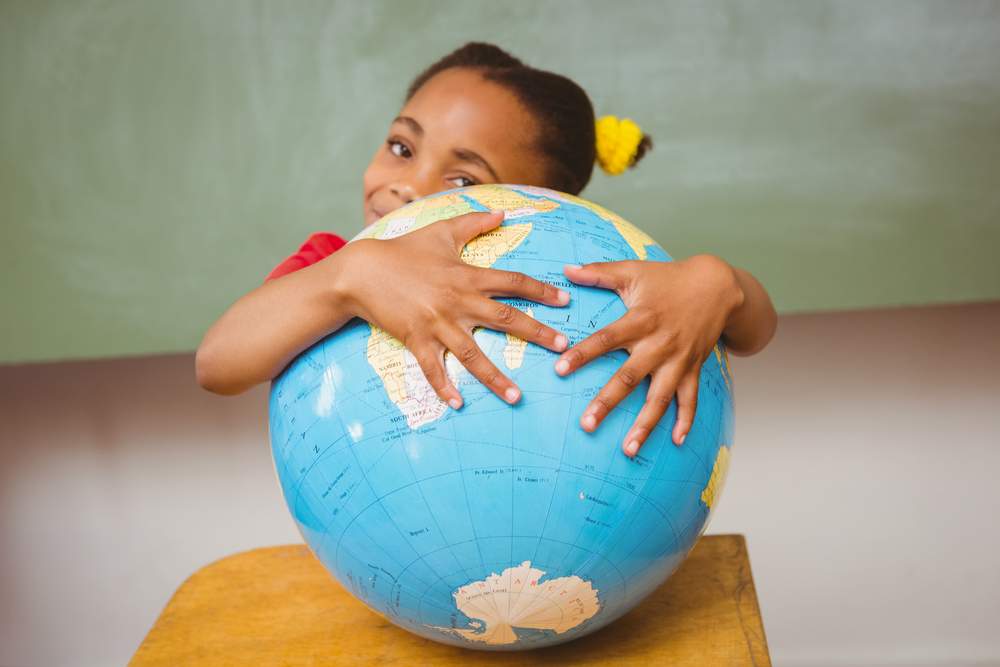The truth is that anyone who travels with a child can road school. All it takes is a slight mental shift, on the part of the parent, towards optimizing the educational benefit of the moment you’re in. That doesn’t mean preaching at your child the whole time, or forcing him to be “learning” every moment, and thus sucking the joy out of the journey, turning “vacation” into a job. Nor does it mean turning your family holiday into a moving classroom with piles of books and worksheets and assignments. It simply means having a little faith in the universal truth that children are, by nature, learners, and tuning into your child and her interests in such a way that you can pick up on what she’s learning and expand on it.
Of course, there are always people who take things to extremes. There are people, like us, who are road schoolers by primary definition. It’s not something we add to our kids’ homeschool program, or work in on weekends, and over summer holidays when they are not in a proper school; it forms the backbone of their educations. We are intentionally using the world as their classroom and making it our business to see as much of it as we possibly can.
- Does this mean that we never use a packaged “course” for our kids, or that there is no set curriculum for them?
- Does this mean that we just learn as we go, whatever is put in front of us, with no framework?
- Does this mean that our kids never learn to sit and focus, or do higher math, or take a test?
No, of course not.
We are not unschoolers. I believe firmly in an interest-led, parent-directed education, in which the natural bent of the child is considered and fostered, and in which the child is given tools to overcome his natural weakness; with a healthy dose of character development on the side. I believe that kids should be encouraged to explore the outer limits of their passions, and that it’s okay to insist that they do certain things, “for their own good.”
A university degree is non-optional in our family. We hope very much that they’ll get it by non-traditional means, but that piece of paper does matter in the “real world,” whether we like it or not, and it’s our goal to prepare our children fully to operate in that world; it opens doors that are firmly shut without it. There are those that disagree with me, I know that, and that’s okay. I’m just laying out our particular philosophy so that what follows makes sense, so that you see where I’m coming from, and what drives our choices, as a family, for our kids’ educations.

Philosophy: The most important question
Before you can take a journey, you must know where you are going. Before you can get there, you have to decide which vehicle best suits your family. Are you a Classical, or an Ecclectic? A Charlotte Mason, a Relaxed, a Traditional schooler or do you show up somewhere on the Unschooling spectrum?
Spend twice as much time defining your philosophy of education as you do worrying about what to teach.
Having laid out our basic philosophy for you, allow me to share what works for us and what road schooling looks like in action for one family.

Curriculum
Traveling for a lifestyle, technology is our best friend, educationally speaking. A rich curriculum fits in a backpack and added to the connectivity of the web, a classroom environment can as well.
How and what we choose to study is driven, in part, by our travels.
- We delved deep into the pre-colonial history of Central America, climbing many of the pyramids while we wintered, two consecutive years in the region.
- We dedicated a semester to the Vietnam War, overlapping our overland road trip through Vietnam, Cambodia, and Laos. Visits to Ho Chi Minh’s grave, prisons, and the DMZ will yield an experience in modern day propaganda that would be tough to replicate in a classroom. Not to mention climbing around American fox holes, high above the Perfume river, parts of the Ho Chi Minh trail, and the border regions of the neighboring countries that were carpet bombed to round out our reading.
- Studies of the Middle Ages and the Enlightenment period in Europe were enriched by a year-long bike ride across Europe, and long afternoons in more than a few castles and museums.
- The Japanese expansion during WW2 takes on a whole new meaning when a kid spends a year in Southeast Asia, reading books about the interment camps and death marches across the very jungles and beaches where she is enjoying monkeys and having adventures. Not to mention buying her fruit from people missing limbs from the land mines still left in the hills.
- The westward expansion in the USA and the epic journey of Lewis and Clark comes alive for kids who cross the Mississippi with a van full of their best friends and listen to Grandma tell stories of her grandmother’s journey across the Oregon trail as a child, standing on the very spot where their ancestors passed.
The subjects that teachers struggle hardest to make interesting to students in a classroom – literature, geography and history – come screaming to life when they’re learned on site, in the real world. Ancient Roman history might seem far removed from the real world to a kid in a classroom in Idaho. Give that same child an afternoon to play gladiators in the colosseum at El Jem, in Tunisia, and the tables will have been turned forever.
When you make the small mental shift that allows you to see education not as something that happens between bells, but as something that is happening from the moment a baby gasps her first breath until the oldest grandmother struggles through her death rattle, the whole game changes. All of a sudden we become less concerned with “standards” or “keeping up with public school” or whether a kid learns things perfectly “in order,” and instead we begin to realize that education is a living experience that is unique to each human being.
Ideas for Road Schooling Projects
Project based learning
Hannah (11) collected dead people. She kept her eye out for historical figures that we encountered, Shakespeare in Stratford-Upon-Avon, Marx in Berlin, Good King Wenceslas in Prague, Mozart in Vienna, Marie Antoinette in Paris, Hannibal in Tunis, you get the idea. She read about them, wrote about them, and told their stories in her journal.
Gabriel (9) photographed churches. Westminster Abbey started the trip with a bang, and Hannah found lots of interesting dead people inside, including the General after whom our home island is named. Martin Luther’s church where the 95 Theses were nailed, beginning the Protestant Reformation. The Sistine Chapel and St. Paul’s in Rome. Tiny mission churches in Tunisia. Notre Dame in Paris. We learned a lot about tripartite symmetry, the differences between gothic and renaissance architecture, and the famous painters who decorated the insides.
Ezra (5) chose a cultural project that was lots of fun for everyone: he collected candy wrappers unique to each country we passed through! We discovered Penguins in England, and had to get one of each style of Penguin, of course. Salami flavoured puffed chips of an odd sort in the Czech. Every possible form of Haribo gummy in Germany, and he even got to be one of the first testers of Kinder brand’s crispy hippos before they were on the market. He has a proprietary pride about them now when we find them on the shelf somewhere else in the world.
You get the idea. Choose a project that can run the course of your trip, and get the whole family invested in each child’s project. Just TRY to get a 9-year-old boy deeply invested in cathedral architecture through a book and you’ll see the magic of project based learning.

Start a blog
If he’s too young to write, then let him dictate to you. Get a cheap digital camera and let him go to town. Encourage him to take on the role of “tester” for his friends at home. Ez views it as a solemn responsibility to try all sorts of things for “the kids at home.” He’s chomped into raw olives (and spat them back out) he’s tried grasshoppers covered with chili and lime, raw fish, dried fish, eel, and every kind of fruit or candy or even palawan wine with durian in it (which redefines nasty). Perhaps his most famous “try” was betel nut, in Vietnam. He’d read about it in his book about a Vietnamese boy and was dying to try it for his friends. We didn’t know that it is a drug, of sorts. He tried it, it made him glassy eyed, and he tried it again. He really likes it!! The old Vietnamese grandmother who shared her chaw with him was crying she was laughing so hard. We cut him off when we found out about its “other” benefits.
Keep journals
We’ve always required our children to keep journals as we’ve traveled. When Ezra was five, he would narrate his day to me, and then copy only the first sentence of what he’d dictated into his journal, I would copy the rest below. Eventually we moved up to two sentences, and then three. His journals are authentically his own words, we just never made a big deal over who was holding the pencil. For all of my boys, I have taken their narrations, and then they have copied those into their journals until they were about nine years old. One was almost 11 before he took off writing on his own. Our daughter, by contrast,was journaling independently at 7. All four are now enthusiastic and prolific writers; the two teenagers both write, and freelance, for the online travel market and get paid. As with most things, teaching writing requires patience and a little faith in your child. Be brave enough to set expectations and wise enough to know when not to push. When in doubt, read aloud more.
Learn something new
- Spend a winter taking Spanish lessons in Guatemala
- Hire a Mayan woman to teach you to weave on a back strap loom
- Learn how to harvest olives in Italy
- Learn to make pasta from an Italian woman
- Take music lessons from a Blues great that happens to run a restaurant in your town
- Take cooking lessons from a British expat chef
- Learn to make tortillas from a Guatemalan friend
- Learn how to make chocolate straight from cocoa beans
- Learn to make coffee from scratch, if you find it growing in your garden
- Take sailing lessons in Canada
- Take kite surfing lessons in Thailand
- Take a massage class from a Costa Rican guy
- Take photography lessons from a professional
- Take SCUBA classes in Belize
If you look around, you’ll find teachers everywhere around you.

Keep good records
Keep good records. Write down the experiences your kids are having, the impromptu lessons that they learn from a stranger on a beach on a Sunday afternoon. Write down which museums you’ve visited and what you saw there. Write down the names of important people who contribute to their educational process. Log any hours they spend volunteering, or involved in a useful project. All of these things contribute to the greater whole and may be of use to you later when you’re trying to demonstrate what your children have learned to someone who matters, in the educational establishment, or perhaps within your extended family.
Are you beginning to catch the vision for the possibilities? Are your creative juices flowing yet? Have those fears about what your kids will be “missing” and how they’ll “catch up” faded into the background yet? I hope so!
Education is immeasurably important. It’s a good thing to spend time worrying about it, planning it, and carefully structuring for your child’s wild success as you take off traveling and everything changes for your family. I’d never trivialize your concerns, in fact, I applaud you for being the sort of parent who is thinking deeply enough to realize that there are things your child can’t learn if you don’t take this trip. That you are fully invested in the process is the single biggest indicator of your impending triumph.
In a nutshell: Carefully consider your philosophy of education. This is the single most important step. Then choose a solid math program that’s portable, and maybe a language one to go with it, if you’re not confident teaching kids to write well. Around that, spin a web of wonder with the real world as you travel, and tie in everything that presents itself. It’s not a matter of “knowing how to teach,” it’s a matter of the tiniest mindset shift towards learning together. The world will teach you both, if you’re brave enough to trust your gut as a parent and let her.
I’ve written much more about education and road schooling, and I would love to help you forward in any way I can. If my approach resonates with you, have a dig through the education section of my blog. You can also read a much longer treatise on road schooling, with recommendations by age group and a long section full of road-tested resources for primary school through university level studies in Wandr’ly Magazine’s Road Schooling 101. They’ve graciously allowed me to reprint segments of that article as part of this one. Don’t hesitate to shoot me an email (through my website), and I’ll be happy to help you figure out what will work best for your family. It’s one of my favorite things to do!
For more on family travel and education on the road, check out the following artilces:
- Five Reasons Parents Should Travel with Their Kids (From a Teen’s Perspective)
- Long Term Travel as Education
- Educational Travel: How to Get Permission and Justify the Experience to Your Local School
Photo credits: Cherries, SantiPhotoSS, Yurchyks, Ollyy, Wavebreakmedia
